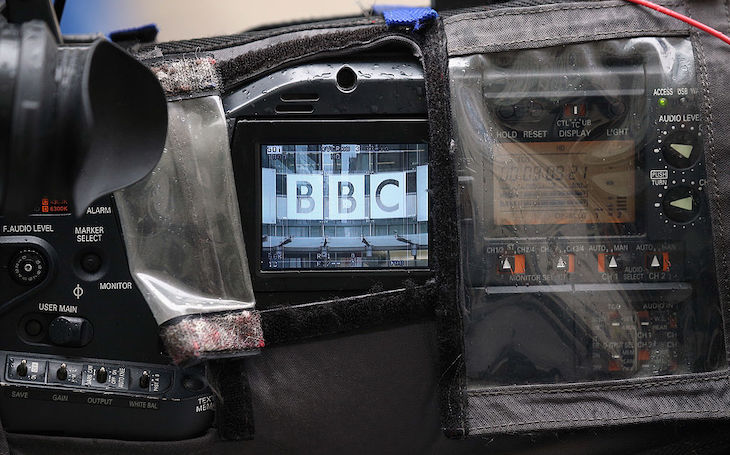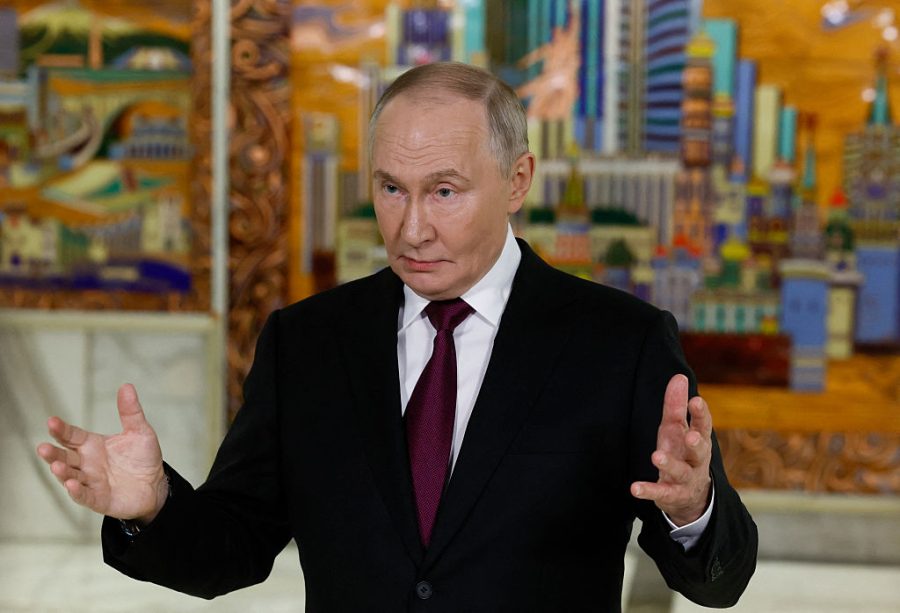Can the BBC ever be objective and unbiased? It’s a question many of us ask ourselves, sometimes in hope, often in exasperation. It’s also a question that the Corporation forever asks itself, but instead in the spirit of aspiration and ambition. So it’s ostensibly good news that it has announced plans to expand its Verify fact-checking unit. On the face of it, this initiative should result in more accountably and scrutiny in its news output.
Verify was born out of insincerity and dishonesty
BBC director-general Tim Davie has unveiled a scheme, on behalf of ‘the world’s most trusted news provider’, to ‘build Verify across more services globally’. Davie also wants to give it a greater role in local reporting as part of a mission to ‘nurture trust’.
Yet if we are on the topic of truth and accuracy, Davie might have spoken instead of a need to ‘dispel mistrust’. This is because BBC Verify has scarcely had a noble track record as a repository of untainted verities.
Ever since its launch two years ago, it has been accused of making factual errors of its own and promoting dubious journalism. The invigilators at Verify have been accused of anti-Israeli bias in its reporting on Gaza, and using a Labour activist to back its analysis of government figures on the farm tax. Danny Cohen, a former BBC director of television, has called the service ‘a major contributor to the damage being done to the BBC’S reputation and its commitments to impartiality and accuracy’.
Rather than expand the remit of Verify, the Beeb would do better to reign in its ambitions. Or, better still, admit that it’s on a mission impossible and scrap it altogether.
Verify was born out of insincerity and dishonesty. It was itself the fruits of a subjective, partial and partisan mindset that has long been endemic in the BBC. It’s time to pull the plug.
Ever since 2016, the year that saw Donald Trump first come to power in the USA and Britain vote to leave the European Union, some liberals have felt alarmed at what they regard as an impressionable proletariat and semi-educated middle class. They think these ‘undereducated’ people are all-too-easily swayed by ‘misinformation’, the tabloid press and the ‘fake news’ that they absorb unthinkingly from social media. BBC Verify was the establishment’s most conspicuous response to a perceived threat posed by the suggestible, ‘low information’ masses.
Yet the foundation of BBC Verify encapsulated much that these disgruntled masses resented in the first place in the out-of-touch elites. It embodied an aloof detachment and self-regard, an insularity connected to a contempt for the opinions of their social inferiors, and the indifference to and incomprehension of those outside their metropolitan tribe.
The Verify unit is a monument to a particular arrogance and Olympian self-importance of the BBC. All news organisations, and most people who read the newspapers or watch television bulletins, understand that what they broadcast or put to print, or see before them, is not the gospel truth, something carved in stone. While the Guardian aspires to abide to its mission statement that ‘comment is free, but facts are sacred’, even that liberal outlet doesn’t continually make a song and dance about it.
Similarly, all quality newspapers have since time immemorial had a corrections and clarifications section. This is something which quietly and without ostentation operates on the understanding that there is no such thing as completely objective news that writes itself, that stories are necessarily written by fallible human beings and from an inevitable vantage point. The range of news outlets available to us, from the Guardian to the Daily Telegraph, from Channel 4 News to GB News, is testament to society’s acceptance and tacit understanding that news is necessarily biased in some form.
While the mission and existence of BBC Verify is superficially worthy and noble, it is fundamentally deluded. It was absurd right from the beginning, as many recognised at the time. Invoking Juvenal’s cautionary words Quis custodiet ipsos custodes?, they saw that its foundation begged the modern question: who fact-checks the fact-checkers? BBC Verify was also the response to one question that needn’t have been asked at all. Getting facts right and presenting them as truthfully as possible is an intrinsic requisite to the job of a journalist or news outlet. By establishing Verify, the BBC only sowed the seeds of suspicion and paranoia that what it been saying was of doubtful reliability all along.
Only in totalitarian regimes, where sanctioned knowledge becomes the monopoly of those in power, is there the doctrine that there is one eternal, incontestable way of thinking. It was no coincidence that the mouthpiece of the communist regime in the Soviet Union was simply called Pravda, or ‘truth’. Conversely, in liberal, free societies erroneous statements can be corrected, while the truths we abide to are accepted to be provisional, consensual and open to question.







Comments